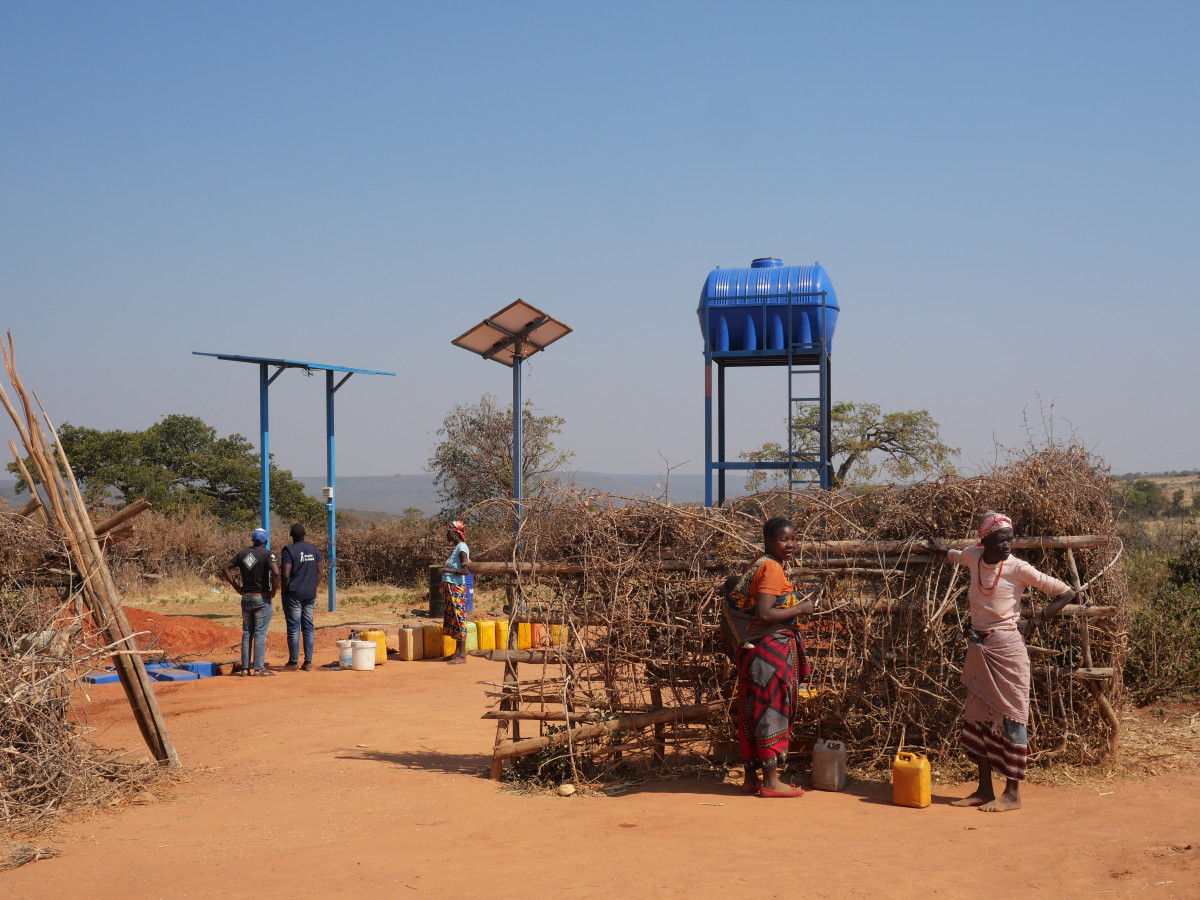Anticipatory Action in Angola: Supporting communities to reduce crisis impacts
Published: Oct 29, 2025 Reading time: 4 minutes Share: Share an articleTraditionally, humanitarian aid is conceived as support to people after a disaster. But if we know that disaster is coming, why wait? Why not act before disaster hits? In 2024, we did just that. By engaging in anticipatory action in drought-hit Angola, we helped protect communities before the drought peaked.

Since 2024, Southern Angola has endured its worst drought in over four decades. Early in 2024 the El Niño phenomenon drastically reduced rainfall in the provinces of Huíla, Cunene, and Namibe, leaving more than 1.2 million people without reliable access to drinking water. With lot of water points inoperatable, families were forced to walk kilometres in search of water, compromising their nutrition and dignity.
But this time, something different happened.
Along with our partner, World Vision (WV), we decided to act in advance to prevent the situation from becoming even worse. With support from the START Network, we repaired 18 water points in Humpata and Chibia before the drought peaked, ensuring 4,100 families had regular access to drinking water. We repaired another 24 with CERF funding after the worst of the drought hit.
The rehabilitated water systems—boreholes equipped with solar pumps, reservoirs, and multiple taps—are simple but life-saving. They are proof that anticipating a crisis can reduce its life-threatening effects.
To help families safely transport and store water, we distributed 4,360 jerry cans and buckets. Each family received 1 jerry can for water transportation and 1 bucket for storage, enabling them to create a water reserve at home. Now, families do not need to fetch water every day and can spend the extra time on other tasks.
Results That Make a Difference
To test the utility of anticipatory action, we undertook a comparative study that evaluated three groups of communities: those that received anticipatory action (before the drought peak hit), those that received traditional emergency response (after the drought peak hit), and those that received no external support.
The study concluded that:
• Communities that received anticipatory support had a fewer constraint in terms of access to water, fewer livestock losses, and more food available during the drought as access to water enabled agriculture to continue.
• Families felt safer and in control, without needing to resort to survival strategies such as travelling long distances to fetch water.
• The aid was perceived as timely and effective in preventing the crisis from worsening.
Read the detailed report here:
Positive impacts were noticeable at the human level: mothers could continue to feed their children, farmers managed to save part of their harvests, and families did not have to abandon their homes in search of water.
This experience demonstrates that anticipatory action works. It can preserve people's autonomy and dignity.
The Angolan case shows that acting before the crisis is more efficient, less costly, and saves more lives than waiting.
With climate change increasing drought frequency, investing in early warning systems and anticipatory action is one of the smartest ways to protect people.

